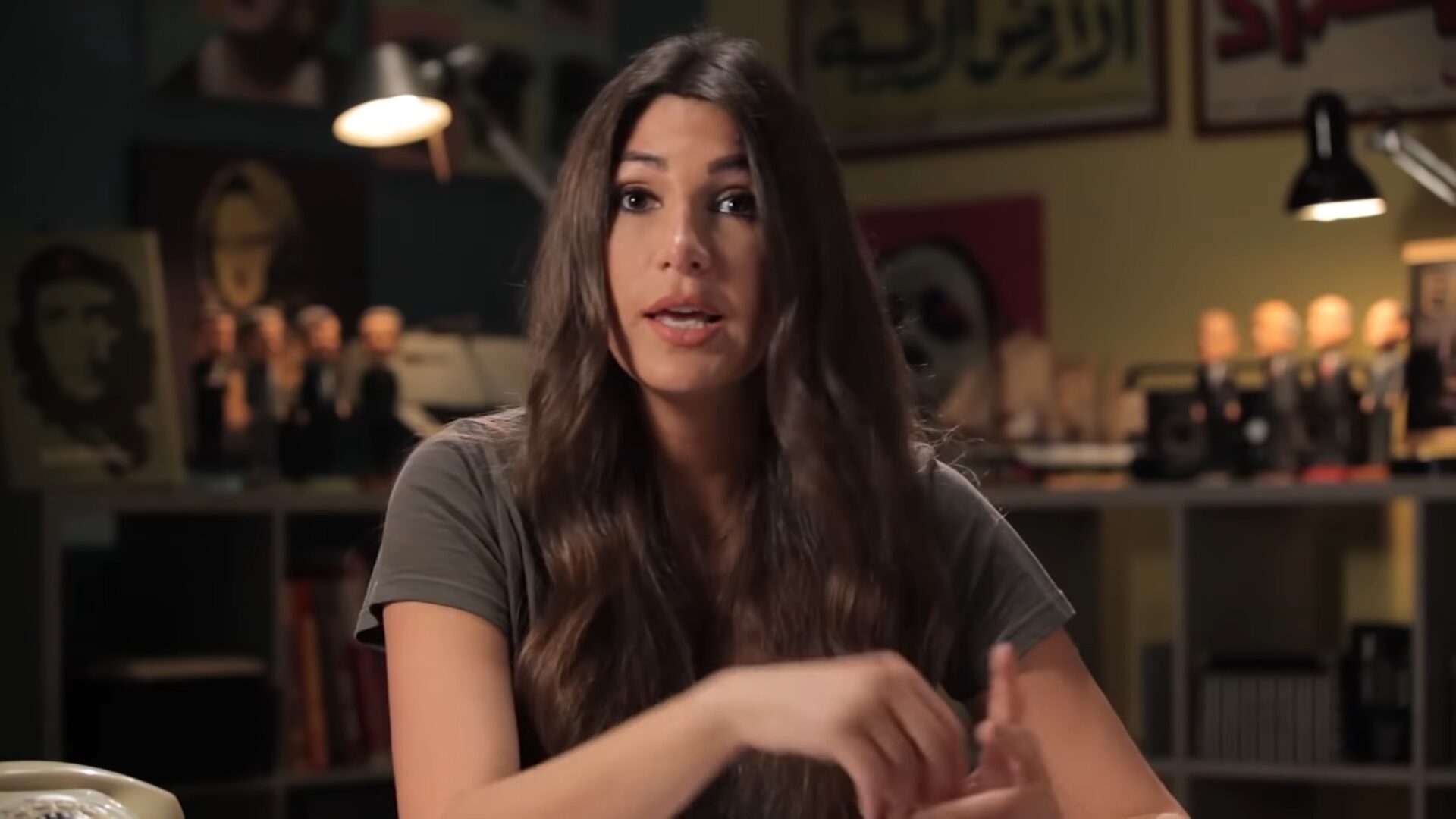Lebanon’s Press Freedom Crisis: Journalist Faces Jail Time Over Tweet
TV presenter Dima Sadek receives a one-year prison sentence for “slander, defamation, and promoting sectarianism” after a controversial tweet criticizing a "racist" attack by loyalists of the Free Patriotic Movement nationalist party
Lately, in Lebanon, it is journalists who are featuring in the news. And the news is never good.
Journalist and TV presenter Dima Sadek was sentenced this month to a one-year prison term, deprivation of civil rights, and a fine of 110 million Lebanese pounds ($7,316). Her crime was a tweet published in February 2020. After two young men were attacked in the northern city of Tripoli by people loyal to the nationalist party the Free Patriotic Movement, she described the action as “racist and Nazi-like.” FPM leader Gebran Bassil, the son-in-law of party founder and former Lebanese President Michel Aoun, launched a lawsuit against Sadek. She is being imprisoned on the grounds of “slander, defamation, and promoting sectarianism.”
Sadek’s is not the first such case. In April, two directors of alternative media in Lebanon were summoned for questioning, bringing the debate around press freedom back into the public eye. Amnesty International has documented more than 10 cases of journalists summonsed for investigation by security and military agencies in 2023 alone.
The message is loud and clear: If you won’t refrain from expressing your views and are openly against the ruling authority and hold it and its parties to account for the daily crimes committed against the people, we’ll make you.
“The message is loud and clear: If you won’t refrain from expressing your views and are openly against the ruling authority and hold it and its parties to account for the daily crimes committed against the people, we’ll make you,” said Doja Douad, co-founder of the Alternative Press Syndicate, a recently created union for Lebanese journalists.
“We were familiar with threats, legal harassment, intimidation, attacks, obstruction, and assassinations before,” Douad told The Media Line. “A jail sentence is now an option as well.”
In the 2022 Press Freedom Index collated by RSF (Reporters Sans Frontières, or Reporters Without Borders), Lebanon was ranked 130th out of 180 countries. According to a report from the Beirut-based Samir Kassir Foundation, there were more than 800 violations of freedom of expression and freedom of the press in Lebanon under Aoun’s presidency from 2016 to 2022.
“There is not a new message,” Ayman Mhanna, the executive director of SKEyes, part of the Samir Kassir Foundation, told The Media Line. “It’s a new enforcement of something we already knew, which is the control of the judiciary by the traditional political parties, so if you attack or criticize someone who is one of the leaders of the big political parties, they will find any interpretation of the law to suppress your voice. I am more concerned about the independence of the judiciary than about freedom of expression because these journalists will continue the fight.”
The lack of an independent judiciary has impacted the Lebanese population for some time. No one has been yet held responsible for the Beirut Port blast that killed more than 210 people on Aug. 4, 2020. And despite being implicated in the disappearance of most of the Lebanese people’s savings, no banks have been held accountable yet.
Lebanese journalists have grown used to doing their work in dire conditions. For the past four years, the country has been going through what the World Bank has described as one of the world’s worst economic crises since the 1850s. Despite the economic difficulties, journalists continue doing their job.
“Because of the very big division that exists in the country, such censorship will not stop journalists from saying whatever they want,” Mhanna told The Media Line. “Also it won’t stop the political parties from using their tools to suppress their voices.”
Sadek’s case has joined other courageous journalistic voices continuing to fight to inform the public.
“Lebanese journalists are facing the crackdown on freedoms and the economic collapse together, meaning they struggle to get the news out, and to keep their jobs with tens of workers’ rights violations, as well as the daily struggle for a margin of freedom and the challenges they face to get their jobs done,” Douad said.
The “politicization of the judiciary” denounced by Mhanna has been impacting the entire population.
“We think there is an intensified campaign against freedom of expression in the country, and it’s been increasing since 2015,” Douad said.
“More people are interrogated because of sharing views online, which also affected the dialogue as most accounts are now fake rather than from people communicating and thinking together. Activists are being forced to stop what they do on all fronts, since there is a crackdown on every fundamental right and freedom of expression is at the heart of all of them.”
Now is a time when the traditional political forces feel emboldened: They managed to get away with the Beirut explosion, without applying any economic reforms; they got away with everything without any sign of accountability
Mhanna told The Media Line that it was hard to be optimistic at this time.
“Now is a time when the traditional political forces feel emboldened: They managed to get away with the Beirut explosion, without applying any economic reforms; they got away with everything without any sign of accountability,” Mhanna said.
Organizations such as the Alternative Press Syndicate and the Samir Kassir Foundation are trying to offer legal protection and guidance to beleaguered journalists. Many colleagues, and some members of parliament, have shown their support to Sadek, who plans to appeal the sentence.


